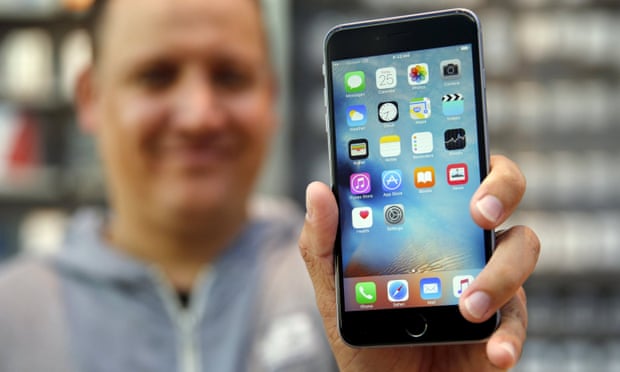
Does Apple slow your iPhone down with each iOS update? Not according to the numbers. Photograph: Robert Galbraith/Reuters
It’s a perennial question asked in offices, pubs, shops and across the internet every year in the run up to the launch of a new iPhone: does Apple slow down older iPhones to make you buy new ones.
On the face of it the question seems either completely daft – imagine if it was discovered that Apple really does hobble older iPhones, it would be VW’s dieselgate for the smartphone – or simply a summation of the feeling that something is changing about the ageing phone you have in your pocket that really does feel slower.
The truth, at least according to the data provided by benchmarking company Futuremark, is that despite what you might feel on a day-to-day basis, your iPhone’s processor and graphics chip are as fast as the day you bought it.
Futuremark collected more than 100,000 benchmarking tests, from the iPhone 5S to the iPhone 7, and averaged the performance of both the processor (CPU) and the graphics chip (GPU) once a month between April 2016 and September 2017 with different versions of Apple’s software from iOS 9 to iOS 11.
According to Futuremark: “iPhone 5S GPU performance has remained consistent from iOS 9 to iOS 11, with only minor variations that fall well within normal levels.”
Processor performance was equally consistent leading Futuremark to conclude that “it is clear that iOS updates have not had a significant effect on performance”.
The graphics performance for the iPhone 6, 6S and 7 also remained consistent, while processor performance dipped slightly with successive iOS updates.
“The graphs for CPU performance show a very slight drop in performance over time – possibly due to minor iOS updates or other factors – but a user would be unlikely to notice this small difference in everyday use,” said Futuremark.

